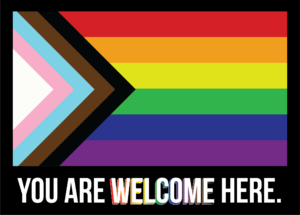Therapy for LGBTQIA+ Individuals near Wheaton, IL
 LGBTQ+ Counseling Services
LGBTQ+ Counseling Services
Seeking mental health assistance can already be challenging for individuals due to fear of being judged or labeled because of the stigmatization placed on counseling. However, LGBTQ+ individuals, challenges can be even more difficult because those who identify within this community battle unique challenges of their own. These difficulties can include stress, managing interpersonal relationships, personal identity, coping skills, discrimination, and oppression, and trouble within school and the workplace. It can be difficult to find the comfort and support for an individual who identifies within the LGBTQ+ community when experiencing these issues.
Affirmative Therapy
Affirmative therapy is a form of counseling to assisting those who are in need of support, comfort, and advocacy, counseling and can be a place where one can gain self-acceptance, and comfortability with their gender or sexual orientation. In counseling, the issue does not automatically stem from a person’s gender identity or orientation but focuses on the thoughts, feelings, and desires one has about their gender identity or orientation.
An appropriate and targeted role of a counselor is to help individuals with leaning towards their own understanding and helping with those thoughts, feelings, and desires that are experienced. Counselors offer comfort, support, and the empathy needed.
Common Presenting Issues:
Gender Dysphoria – Though there are no physical symptoms, individuals with gender dysphoria may experience a difference between their gender identity and biological sex during early periods of childhood, and others may not experience this until they are an adult. Gender dysphoria can cause stress and can disrupt mental health.
Gender Dysphoria in Children
In some cases, gender dysphoria in children can include:
- Refusing to or having a dislike in wearing clothing that is commonly worn by their sex assigned at birth and wanting to wear clothing from those of the opposite biological sex
- Insisting that they identify as a gender other than the sex assigned at birth
- Insisting or hoping their genitals will change
Children with gender dysphoria may display some or all of these behaviors. However, in many cases, these behaviors do not necessarily contribute to a child having gender dysphoria. In some cases, many girls portray “tomboyish” behavior, which can be considered a common development for females, and it would not be uncommon for a boy to dress up in their mother’s or sibling’s clothes and typically can just be a phase in development.
Sexual Identity – Sexual identity consists of having thoughts, feelings, and desires of a person’s sexual or romantic to another individual. LGBTQ+ individuals may have phases of questioning their sexual identity, which could cause confusion. In addition, many individuals struggle with coping when it comes to their interpersonal relationships and “coming out” to loved ones. Also. these feelings may affect a teenager or adult differently than it possibly would for a child.
Coping with Discrimination and Stigma
Discrimination and stigmatization are common stressors for those who identify with the LGBTQ+ community. Because of this, it may be difficult for an individual to cope or find the support. Some helpful tips to cope with these stressors include:
- Seeking a professional counselor if your daily functioning and routines are being disrupted by stressors or discomfort. If signs of a mental illness are present, having the support and gaining a better understanding for your mental health is important.
- Finding support from family, peers, or resources within your community is encouraged. Being able to fully express yourself and be open with those around you is important and beneficial.
- Learning more information on the LGBTQ+ community and the unique issues they may struggle with. This can increase understanding on the challenges that are faced for those who identify within the community.
- Learning more information on human rights laws and how these laws pertain to the LGBTQ+ population.
- Become an advocate for others, especially if you witness/have witnessed an act of discrimination targeted towards another. If you are or have been a victim, speak up and speak out against discrimination and fight against the stigma.
- Share your experiences with others who are experiencing the same stressors or join a support group to share your thoughts and feelings.
*Be advised all mental, emotional and behavioral services are currently offered via online counseling. In-person sessions available with minimal availability.*
